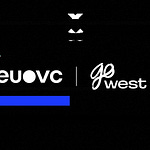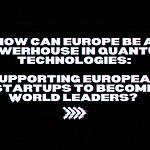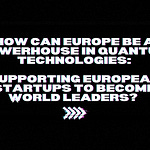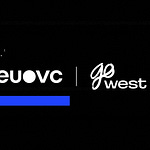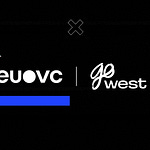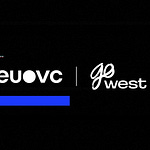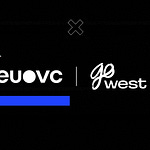Mike Maples Jr., the legendary co-founder of Floodgate and early backer of Twitter, Lyft, and Twitch, joined EUVC to deliver a masterclass in contrarian venture investing. His message to European GPs and LPs was clear: the biggest winners don’t follow the rules — they break them.
He not only challenged European venture capitalists to rethink their playbooks but also distilled years of hard-won wisdom into a framework he calls Inflection Theory, urging GPs and LPs alike to focus on pattern breakers instead of pattern matching.
In typical fashion, Mike was sharp, candid, and even a bit irreverent, dropping truth bombs about everything from what makes a founder truly breakout to why fund size is a VC’s destiny. This essay captures those key insights and explores what they mean for European investors who aspire to back the future’s biggest winners.
Mike Maples Jr. has never been one for incremental change. As our conversation revealed, he believes venture success comes from “changing the subject” entirely – defying conventional wisdom and waging “asymmetric warfare on the present”. European GPs and LPs tuning in were treated to a masterclass on identifying unreasonable founders who don’t fit the mold, and why the usual check-the-box approach to startups misses the mark. From Inflection Theory and the anatomy of breakout founders to the transatlantic culture clash in tech, let’s dive into Maples’ playbook – and see how it challenges us all to up our game.
Inflection Theory: Venture’s Punctuated Equilibrium
Maples’ Inflection Theory is rooted in a startling realization from his first decade in seed investing: the biggest wins often come from founders who pivot or defy their initial plans, not those who execute a “perfect” original idea. In his words, he noticed 80-85% of his exit profits came from companies that broke the pattern and reinvented themselves. This led him down a rabbit hole to understand what drives breakout success. The answer: inflections – pivotal changes in technology or society that create entirely new opportunities for startups willing to seize them.
Mike Maples (01:41)
“I didn’t even have Twitch on my books… One day I notice Amazon is thinking about buying Twitch for close to a billion dollars. I told my LPs: Good news, we just made 90x. Bad news, I never reported it.”
What’s an inflection? Mike and his co-author Peter Ziebelman define it as “an event that creates the potential for radical change in how people think, feel, and act.”
An “inflection” is any event that redefines what’s possible — from smartphones with GPS enabling Uber to COVID lockdowns normalizing telemedicine. Maples argues that instead of asking how big a market is today, investors must ask:
What inflection is this founder riding?
Who does it empower?
What must be true for it to work?
See also Mike Maples (05:19) for his take on why startups should seek unfair fights rather than fair ones.
“A startup wins when they refuse the premise of the rules and impose a new heretical set of different rules… We don’t want a fair fight — we want an unfair fight that’s to our advantage.”
The bottom line: incremental improvements rarely change the game. Outlier startups don’t compete on incumbents’ terms — they redefine the terms altogether.
Inflection Theory flips the traditional evaluation script. Instead of asking “How big is this market today?” or “How polished is this pitch?”, Maples first asks: “What inflection is this founder harnessing, and what new form of empowerment does it unlock?”. If a startup can ride a massive external wave – a punctuated equilibrium event that changes the landscape – it can make its own rules. This is why Mike argues, “better doesn’t matter with startups. You have to be radically different to make a difference.” A venture that simply improves on the status quo will always be measured (and usually discarded) by incumbent standards. In contrast, a startup built around a genuine inflection can offer something categorically new that customers desperately want, even if it looks crazy at first.
The takeaway for VCs: evaluate startups through the lens of inflections. If you can’t identify a profound external change that makes this venture’s timing impeccable, think twice. As Mike puts it, “comparison is death for a startup… you want to be something that can’t be reconciled with anything that’s come before.” Inflection points are what allow a startup to escape comparisons entirely and render old benchmarks obsolete.
Breakout Founders: The Pattern Breakers
The founders who thrive in this model are what Maples calls Pattern Breakers. They aren’t MBA-perfect; they’re often unorthodox, even “weird.” What sets them apart is that they’ve already immersed themselves in the future they want to create. Maples affectionately calls Pattern Breakers to all contrarian founders who don’t follow the usual playbook.
Maples’ favorite litmus test: “What future are you living in?” ([15:31]). The best founders answer with lived experience, not abstract slides. Great founders, he finds, can answer in concrete terms – they have immersed themselves in the future that they’re trying to create. Rather than simply brainstorming business ideas in a vacuum, they’ve earned unique insights by personally experiencing a nascent trend or technology before others. In Maples’ view, “vision is not just thought – it’s lived experience.”
They pair radical insight with creative, sometimes scrappy execution — like Airbnb selling cereal boxes to survive or Justin Kan livestreaming his life before Twitch was born.
These entrepreneurs are the iconoclasts who combine bold ideas with bold actions and compel others to believe in their vision, not because it’s polished, but because it’s authentic and urgent. As Maples puts it: great founders run plays not in anybody’s playbook.
The founder who lives in the future develops a visceral understanding of an inflection: they see what’s now possible, what’s missing, and which conventions can be discarded. This is founder-future fit at its finest – an alignment between the person and the inflection-driven future they believe in.
Mike (15:31) shared his favorite “cheat code” when meeting founders:
“My favorite cheat code is to ask: What future are you living in? Great startup ideas don’t come from thinking of a startup; they come from living in the future before others do.”
Breakout founders also exhibit a streak of what Mike calls creative execution. It’s not just their ideas that are nonconformist – it’s their behaviors too. Maples gave examples: Airbnb’s Brian Chesky hawking politically themed cereal boxes to keep his startup alive, or Justin Kan strapping a camera to his head to livestream his life (the genesis of Twitch). These hustles might have looked like red flags to buttoned-up investors, but in hindsight, they signaled founders who “run plays that aren’t in anybody’s playbook.” In other words, pattern breakers often appear weird or reckless by conventional standards – and that’s exactly their edge.
They are willing to do things that don’t scale (or don’t make sense to others) to learn fast and pull the future forward. Mike Maples Jr. emphasizes that such founders pair non-consensus ideas with persuasive storytelling and grit. It’s not enough to see a different future; you have to compel others to come along for the ride. Breakout CEOs tend to be movement-builders. They frame their startup as a mission, not just a product, and “can emotionally move us to a vision of a different world”.
This echoes the importance of movement and narrative in startup success – a theme Maples highlights in his book Pattern Breakers and elsewhere (successful founders often rally early users and investors around a cause, and portray customers as heroes on a journey). Crucially, these individuals also display “healthy disagreeableness” – a polite way of saying they’re unafraid to challenge the status quo and ruffle some feathers in the process. All progress depends on “unreasonable” people, as George Bernard Shaw observed, and Mike wholeheartedly agrees.
For European GPs scouting the next generation of unicorns, the message is clear: seek out the misfits with a cause. The founders who will create outlier returns probably won’t fit the classic MBA mold or slide neatly into your market taxonomy. They’ll be the ones denying assumptions, experimenting at the fringes, and maybe doing things that make you raise an eyebrow. Don’t dismiss these traits – decoding them might be your key to finding the next Spotify or Skype.
Remember, as Maples says, the Twitter guys were a mess in the early days (couldn’t keep servers up, co-founder drama), yet users didn’t care – they needed to tweet. Meanwhile, plenty of startups that did “all the right things” still failed because they were simply too normal and aimed at a lukewarm opportunity. Breakout founders are different by design, and recognizing their potential means looking past the noise of conventional metrics and focusing on inflection, insight, and intensity of vision.
Rethinking the VC Playbook: From Pattern Matching to Pattern Breaking
One of Mike Maples Jr.’s core arguments is that venture capital has been trapped in pattern matching for too long – especially in ecosystems outside Silicon Valley, where investors sometimes cling to what “works” elsewhere. Maples urges a shift to pattern breaking: backing founders whose ideas initially look strange but are powered by inflections.
Inflection Theory directly challenges traditional startup evaluation methods. Instead of valuing predictability, it prizes potential. Instead of asking whether a startup checks familiar boxes (known market, competitive advantage, polished team), it asks whether the startup could change the game entirely. Maples urges investors to avoid the “comparison trap” – the habit of judging new startups by analogies to existing companies or standards. A startup that looks unlike anything before is precisely the one that might have no competition in the future (because it reframed the problem). As he succinctly put it, “you want a product that forces a choice, not a comparison.”
This means resisting the comfort of detailed early traction or business models. If you judge only by conventional checklists, you’ll miss them.
This worldview turns some VC orthodoxies on their head. For instance, many investors love to see detailed business models and measurable traction early on. However, Maples’ research into pattern-breaking companies revealed that the biggest winners often start as oddballs: their early metrics can be misleading, or their initial product a far cry from what eventually hits gold (think of how Twitch began as Justin.tv’s side project or how YouTube started as a dating site).
The truth is, relying on checklists and consensus thinking makes it hard to catch truly disruptive startups. Those startups initially look wrong or trivial – until they reshape industries.
For European ventures, this is a call to be bolder and more contrarian. Europe’s VC scene has sometimes been criticized for risk aversion or for searching for the “European X of Y” (a safer, localized version of a U.S. model). Maples’ insights nudge us to flip that approach. Rather than asking “Is this the next FinTech marketplace we’ve seen before?” ask “Does this founder see a future others don’t? Is this idea non-obvious but potentially huge if it works?” Moreover, he suggests using diagnostic questions to sanity-check a startup’s breakout potential: e.g. “What’s the inflection and who will be desperate for this new empowerment?”. If the founder struggles to answer, the idea might not pass the inflection test.
In short, Mike Maples Jr. challenges European investors to favor revolutionary upside over evolutionary improvements. The future belongs to those who refuse to play by yesterday’s rules – and our venture bets should reflect that.
Fund Size and Strategy: Why Small Can Be Mighty
Maples is blunt: “Your fund size is your strategy. It’s like the Olympics decathlon: if you put the bar too high too soon, you no-height out of the competition. A €500M fund is a promise to your LPs that you’ll find billion-dollar exits.” A €500M fund implicitly promises billion-dollar exits — a bar most can’t clear. That’s why Floodgate stays small (~$75M). With a lean fund, a couple of unicorns can return multiples many times over.
For European GPs, the takeaway is clear: bigger isn’t always better. Right-sized, focused funds can deliver stronger multiples by concentrating on true outliers instead of chasing prestige AUM growth. LPs should examine not just fund size but also portfolio construction and follow-on philosophy. Mega-funds often become anchors, forced to deploy into borderline deals. A nimble €50M fund, if disciplined in spotting inflection-driven startups, can outperform a much larger one.
At Floodgate, Mike keeps funds intentionally small. Why? Because with a lean fund, you don’t need decacorns to deliver top-tier multiples — just a couple of billion-dollar wins can return the fund many times over.
Consider the fund’s size, portfolio construction, and follow-on philosophy through the Inflection Theory filter. As mentioned, Mike argues that larger funds can become anchors if not aligned with a truly exceptional strategy. European LPs often pressure managers to scale AUM (to “graduate” to bigger funds), but LPs might recall Maples’ warning: mega-funds in early-stage can struggle to hit the high bar for exits. A nimble €50M fund that consistently picks inflection startups might outperform a €500M fund forced to deploy cash into borderline deals. Likewise, LPs should discuss a manager’s follow-on approach. Do they blindly reserve half the fund for follow-ons (potentially doubling down on mediocrity), or do they, like Floodgate, concentrate on winners and new opportunities?
Mike’s data-driven claim that follow-on dollars often yield poor returns is a wake-up call. If a seed fund tells you they save 2/3 of capital for Series B and later rounds, ask why – is their edge really in later stage pricing, or are they just following convention? The LP community in Europe can push GPs to articulate how their capital allocation maximizes chances of a 100x outcome. As Maples notes, great funds distinguish themselves not by avoiding losses, but by how big their wins get. An LP should thus zero in on whether a GP has a plan to nurture massive winners (and the conviction to concentrate capital there), as opposed to spreading bets too thin.
Finally, LPs might do well to “pattern break” in their own behavior. European LPs are sometimes known for lengthy committees, conservative check sizes, and a preference for established names. Mike Maples Jr.’s ethos suggests that backing the truly innovative often means going against the grain. Perhaps it means investing in a first-time fund with a radical thesis, or a micro-fund targeting a new frontier technology – if you believe in the GP’s Inflection Theory logic.
Remember, the power law drives venture returns: a tiny fraction of investments account for the vast majority of gains. Mike even quantifies it: to be great, about 15% of your deals need to be 20x “baggers,” and ~5% should be 100x on first check. When selecting managers, LPs should ask themselves:
Does this team have the insight and network to find a potential 100x company? If yes, that matters more than slight differences in management fee or firm pedigree. Europe’s LPs can encourage the VC ecosystem to swing for the fences by entrusting capital to those who demonstrate real conviction in breakthrough ideas over incrementalism. In short, apply Inflection Theory as a filter: bet on VCs who bet on inflections.
Mike puts it bluntly: “If I want to know a firm’s strategy, I ask how big is your fund.” Your fund size determines everything – the check sizes you can write, the stage you play at, and the magnitude of exits you need. A seed fund managing €30M simply can’t invest like a growth fund, and vice versa.
Maples warns that too many VCs chase larger funds without internalizing the promise that comes with scale. Raise a €500M fund, and you implicitly promise to find a company that can return a few billion. For most, that bar is impossibly high.
“Your fund size is a promise to LPs about how much exit profit your best investment will produce.”
Follow-On Discipline – Play Offense, Not Defense
Many VC firms allocate heavy reserves for follow-on rounds, fearing dilution or signaling issues. Maples flips this logic using hard data: he observed that most firms’ follow-on investments dramatically underperform their first checks.
For GPs with smaller funds, this discipline frees capital for the next inflection bet. Floodgate instead runs a 70/30 model — ~70% for first checks, ~30% for selective follow-ons.
The principle: double down only when you have conviction and an edge. For example, if Benchmark or Sequoia leads the next round and you still believe strongly, that’s the time to exercise pro-rata rights offensively. But following on out of fear or convention risks compounding mediocrity.
Mike’s rationale: put your money where your edge is – finding unseen opportunities early. By the time of Series A/B, a seed VC often has less edge (the market has more data, more competitors bid up the deal, etc.), so doubling down widely can turn into chasing your losers. Instead, Maples suggests using pro-rata rights selectively and offensively. In his words, “the trick is to know when your pro-rata is an opportunity to play offense with your money”.
For example, if a top-tier investor (say Benchmark or Sequoia) is leading the next round of your company and you still believe strongly, that is a moment to follow on – you have information and a co-investor advantage. But never deploy follow-on capital out of fear or obligation, only out of conviction that you’re backing a future 100x.
For smaller European funds, this discipline frees capital for the next breakout bet. As Maples notes, allocation between first checks and follow-ons is like asset allocation — it shapes returns. Great funds aren’t defined by avoiding losses, but by the scale of their biggest wins.
Founder Selection – Find the “Future Dwellers”
When evaluating founders, look for those who’ve lived the future they describe. Slides and polish matter less than authentic, earned insight and the ability to pull others into their mission. As Maples puts it, the best founders don’t offer generic market talk — they reveal secrets only visible from the future they already inhabit. He listens for evidence that they’ve lived in the problem/future long enough to know it deeply.
In a European context, this might mean favoring founders with big visions and charisma, even if they come off as a bit unorthodox or “disagreeable.” Ask yourself: Is this founder telling me something genuinely non-consensus (and can they back it up with an “earned secret” or experience)? And, do they have the tenacity to pull others into their mission? If yes, they’re likely the kind of leader who can weather the pivots and chaos en route to greatness. If not, even a polished plan may fizzle when reality intervenes. In short, bet on the founder with a fresh lens on the future, not just a resume from the past.
Implications for LPs: Picking the Pattern-Breaking Funds
European Limited Partners – pension funds, family offices, fund-of-funds – also have much to gain from Maples’ Inflection Theory lens. LPs are essentially the VCs of VCs: they must decide which fund managers will produce outlier returns. Here’s how Mike’s thinking can guide LPs in fund manager selection:
First, evaluate a GP’s strategy for signs of outlier hunting versus incremental chasing. Ask questions that surface whether the VC is truly oriented toward finding non-consensus, inflection-leveraging startups. For example, does the GP talk about seeking “non-obvious” deals and founders who think differently, or do they seem to just follow hot sectors and play it safe?
Andreas (our EUVC host and an LP himself) highlighted that Mike’s framework separates VCs chasing true breakouts from those backing “the next iteration” of existing ideas. For LPs, the test is simple: does the fund have a clear thesis on future inflections, and can they point to past wins that were non-consensus at the time? In due diligence, review a GP’s top hits and misses — if their winners were all obvious, outperformance may not last. But if they backed strange bets, others dismissed that later defined a category, signaling a genuine pattern-breaker mindset. As Maples notes, the best investors are “non-consensus and right” about the future.
US vs. Europe: Ambition, Regulation, and the Future
No conversation with Mike Maples Jr. would be complete without addressing the elephant in the room: how does Europe stack up against the U.S. in producing inflection-driven companies? The discussion surfaced a few important points – and some passionate words from Mike aimed at the European tech community.
On Ambition: There’s a stereotype that European founders are less ambitious or aggressive than their Silicon Valley counterparts. Mike flatly rejects this notion. “If you said to me, European entrepreneurs have a lot to learn from US entrepreneurs, I’d push back,” he told us. Great founders exist everywhere; it’s absurd to think ambition stops at the Atlantic. He gave a shout-out to Spotify’s Daniel Ek as “a freaking stud” – one of the most precise executors of an early niche that Mike has ever seen.
“When I met him, I felt like this guy is a kindred spirit. I don’t care where he’s from – energetically, I’m in his tribe,” Maples said. The message landed loud and clear: European founders are every bit as ambitious as Americans. If anyone doubts it, just look at the global impact of companies like Spotify, Adyen, Klarna, UiPath, etc. Mike even noted that many of history’s greatest pattern breakers – in art, science, industry – came from Europe. “Europe is the crucible of civilization… some of the most groundbreaking ideas in human history came from Europe. That’s not tribalism, that’s an objective fact,” he reminded us. The challenge, therefore, is not about European talent or vision – it’s about unleashing it.
On Regulatory Headwinds: Where Europe does face hurdles, Maples and the EUVC hosts agreed, is in structural friction – fragmented markets, heavy regulations, and sometimes a culture that penalizes failure. Europe “keeps getting in its own way” with well-intentioned regulations (GDPR, the coming AI Act, etc.) that can inadvertently slow down innovation. Mike alluded to some concerning trends, like the UK flirting with speech restrictions that run counter to the very Enlightenment ideals Europe championed.
The implication for European GPs and LPs is that we must be mindful of these macro factors. Yes, an inflection-driven startup can originate in Europe – but will it scale here if policy is hostile or capital markets fragmented? This is partly why Europe sees talent and companies often relocate or focus on the U.S. market for scaling. It’s a call for Europe’s tech community to engage more with policymakers (more on that in a moment) and to create workarounds in the meantime. For instance, European funds are increasingly syndicating across borders to overcome local market size limits, and founders are lobbying for smarter regulations. The bottom line: ambition is plentiful, but the ecosystem must fight to give those ambitious startups the same jet fuel (integrated markets, receptive regulations, abundant growth capital) that Silicon Valley enjoys.
On Tech Leaders and Policy: Perhaps the most animated part of the conversation was around whether VCs and founders should get political. In the U.S., we’ve seen prominent tech figures and investors actively shape policy – from crypto regulation lobbying to aligning with government initiatives. Europe historically has been more detached in this regard. Our host Andreas noted that “VCs and tech founders are living in the future… we have a social responsibility to get involved in politics” because technology is shaping society. Mike’s take on this was nuanced but ultimately encouraging.
He cautioned against blind tribalism – “keep your tribalist instincts small,” he said, meaning don’t just adopt a party line or nationalism for its own sake. But he agrees that those who see the future have to stand up for it. He appealed to Europeans to reclaim their heritage of bold ideas and individual rights. “I want people in Europe to remember who they are… Europeans, just like Americans, should stand up for their sovereign individuality. In whatever way they can to make the future better. If that means engaging in politics in the right places, so be it.”.
This is a powerful call: Europe doesn’t need to mimic the U.S., but it does need its founders and investors to advocate for the future they want to see. Whether it’s pushing back on onerous regulations, influencing education and research funding, or shaping a pan-European stock option regime – the tech community can’t sit on the sidelines. As EUVC has echoed, “pawns don’t shape endgames – vision and velocity do.” If technology is the key force shaping society, then tech leaders must have a voice in policymaking, or risk leaving the fate of innovation to those who don’t fully understand it.
For European GPs and LPs, this means your role can be larger than just capital allocation. It can extend to thought leadership and activism for the ecosystem. We’ve seen encouraging signs: more VC firms here are hiring policy advisors; industry groups are engaging Brussels on startup-friendly policies. Maples’ perspective adds a philosophical underpinning: engage not out of tribal loyalty, but out of a principled desire to ensure the future (the one we glimpse through inflections) is not stifled by the past. In summary, Mike’s transatlantic view is optimistic – Europe has all the ingredients to birth and scale pattern-breaking companies, provided we double down on ambition, navigate/regain control of regulation, and assume responsibility as futurists guiding society. It’s both a compliment and a challenge to Europe’s venture community to step up.
Conclusion: Embracing Our Inner Pattern Breakers in Europe
Mike Maples Jr.’s visit to the EUVC podcast wasn’t just a talk – it was a dare. A dare to remember, challenge, and act in new ways after hearing his gospel of Inflection Theory:
Remember the core insight: “Better doesn’t matter… you have to be radically different to make a difference.” Whether you’re a founder, GP, or LP, etch that into your strategy. The next generation of European unicorns will emerge from those who break patterns, not follow them. As investors, we succeed by backing the unreasonable and the bold – the startups that change how people think, feel, and act at scale. Keep this in mind when evaluating opportunities or managers.
Challenge your assumptions and the status quo. Are you sizing your fund based on prestige, or based on the actual ability to deliver 5x+ returns to your LPs? Are you writing follow-on checks out of habit, or because you truly have an edge? Are you dismissing a crazy-sounding founder who might just be seeing something you don’t? Take a hard look at your “pattern recognition” criteria and ask if they’re rooted in genuine predictors of inflection-driven success – or just comfortingly familiar proxies. Europe’s venture community can’t afford complacency. As Mike reminded us, Europe has been a wellspring of world-changing ideas. We should challenge any narrative that says we can’t do it again, and we should certainly challenge policies or norms that hold back our founders.
Act on these insights to shape a better future for European tech. This might mean adopting a more Inflection Theory-driven approach in your day-to-day: for GPs, maybe tweak your investment memos to explicitly identify the inflection a startup is riding and stress-test if the idea truly forces a choice in the market. For LPs, it could mean reallocating some capital to smaller, more agile funds chasing unique ideas, rather than only big-name funds following the crowd. And for all of us collectively: step into the arena. Advocate for the changes our ecosystem needs – be it more unified regulation, talent-friendly immigration, or public R&D support.
Europe’s venture community has a chance to cultivate a generation of such individuals – to truly become Pattern Breakers on the world stage.
The conversation with Mike was a jolt of inspiration and a reminder that the best way to predict the future is to fund it (or build it) yourself. Now it’s up to us in the European GP/LP community to take up that challenge.
The call to action is clear: be bold, be different, and don’t be afraid to bet on crazy. Our ecosystem’s greatest inflection point may well be the mindset shift that this entails. Let’s get to it – the future won’t wait.
🤗 Join the EUVC Community
Looking for niche, high-quality experiences that prioritize depth over breadth? Consider joining our community focused on delivering content tailored to the experienced VC. Here’s what you can look forward to as a member:
Exclusive Access & Discounts: Priority access to masterclasses with leading GPs & LPs, available on a first-come, first-served basis.
On-Demand Content: A platform with sessions you can access anytime, anywhere, complete with presentations, templates, and other resources.
Interactive AMAs: Engage directly with top GPs and LPs in exclusive small group sessions — entirely free for community members.







